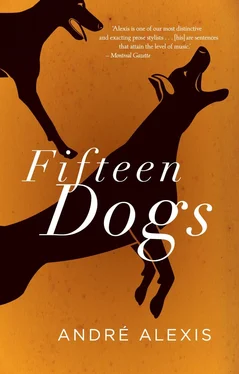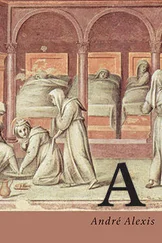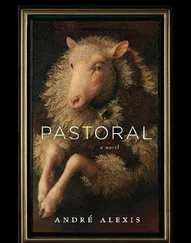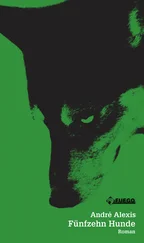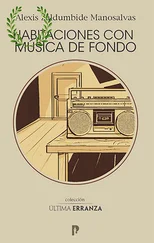His life changed. The waiting changed.
Interest in Majnoun died down with the ‘For Sale’ sign that appeared on the lawn of he, Miguel and Nira’s home. Evidently, Miguel’s family were selling what did not belong to them. In a matter of weeks, the sign came down and strangers began to enter and leave his home: a woman, a man, two small children with blond hair.
Rather than staying on any one lawn or waiting in any one place, Majnoun varied his vantage points: across the street, two houses down, one house down, and even — once he was certain the woman and her children were not violent — in the backyard that had been his. As the years passed and he grew older and thinner, Majnoun learned to worry a little less that he might miss Nira’s return. He grew more confident that Nira would look for him when she came home and, what’s more, that he would know she was looking. When she came back, he would know it.
As his life settled into a routine, the world slowly changed around him. Two years after Nira had gone, the people on Geoffrey began to leave food out for him: a piece of meat or chicken, bread, carrots, whatever was leftover from their own meals. They kept their distance, because Majnoun was still a little intimidating (black with some grey, inscrutable, alert), but no one ever called the Toronto Animal Services again. The dogs in the area left him alone as well. Not out of fear, not because he was unnatural, but because the purity of his attention commanded respect. No dog could have doubted or misunderstood Majnoun’s resolve or the depths of his longing. They all knew what it was like to wait and, every once in a while, one would join Majnoun, silently sitting at a slight remove, sharing his task as a mark of respect.
To keep himself alert as he waited, Majnoun thought about things. Over the years, he thought about a thousand things, but two questions occupied most of his time. The first was about humanity. What, he wondered, did it mean to be human? The question was, ultimately, impossible for him to answer. He had been born outside of the human and, so, was ignorant of the implications of a world created by their limitations. What would it be like, for instance, to be unable to distinguish the smell of snow in winter from the smell of snow in early spring? What kind of world was it in which one could not, blindfolded, distinguish the great range in the taste of water or smell when a female was in heat? To be so limited? Inconceivable. And, of course, it was impossible to know a state (to know the human) by subtracting things in oneself, as if ‘human’ were what is left once the best of dog has been taken away.
This question was a way to think about what made Nira Nira, to try to imagine the world as she saw it, to feel it as she felt it, to think about it as she might.
The second question was about himself and what it meant — if it meant anything at all — to be a dog. What was he, really? Where did he fit in the world? Was he waiting for Nira because it was in his nature to wait, or was his dedication unique and noble? Most days, he felt only that waiting was right. Every once in a while, however, he imagined waiting was only the expression of an instinct, something he had to do. This thought, whenever it occurred, saddened him, mere instinct being unworthy of Nira, who was not his master but, rather, a being who completed him, made him more than he would otherwise have been.
And so, speculating about the canine brought him closer to Nira as well.
+
Though it is far from obvious, the gods are not inevitably indifferent to the suffering of mortals. At times, mortal suffering is amusing to them, at times diverting; at times, though rarely, it is touching.
When Majnoun’s vigil had lasted five years, Zeus allowed himself to notice that the dog had lived well beyond its span, that its suffering was unnecessarily prolonged. Moved by the dog’s nobility of spirit, he visited the hall of the Fates.
No one enjoys visiting the Fates. They are haughty and beyond petition. They are eccentric in their views, and the hall where mortal lives are spun is itself unpleasant: white, exactly one millimetre less than infinite in length, ten metres tall and ten metres wide. Eleven white urns — each filled with the essence of a particular emotion — sit in a row near Clotho’s spinning wheel. As a life is spun, it is dipped in each of the urns by Lachesis before being cut by Atropos. (In principle, Lachesis dips each and every thread in each of the jars, assuring that every life has the same generous emotional range. Lachesis is unpredictable, however, dipping some threads in one or two emotions alone, rendering a life monotonous or unbearable. It is through Lachesis that suicides are born.)
Given their mansion and their personalities, it is not surprising that most of the gods avoided them entirely, that the sisters had only each other for company. So, it was with a mixture of secret pleasure and open defiance that Clotho, Lachesis and Atropos received Zeus into their hall.
— I hope you haven’t come to blame us for anything, said Atropos.
— I have known you since the beginning of time, said Zeus. You’ve never been anything but blameless.
— He’s right, said Clotho. We do what no other immortals can do. We must be blameless.
The sisters laughed.
— And yet, said Zeus, your tasks are not always rightly done. It seems some mortals have had their lifespans shortened while others have had them prolonged.
— The king of the gods must be at fault, said Atropos, if an injustice has been committed.
— It isn’t I who decided to extend Majnoun’s life, said Zeus. You three have drawn out the suffering of an innocent being. You have interfered where I expressly forbade it. But I’m sure you have your reasons and I’d be honoured if you shared them with me.
— Fuck you, said Atropos.
— If the being you refer to is suffering, said Clotho, talk to your sons about it. They’ve always been meddlers. I’m sure you’ll find they’re to blame, though some might blame you since you’re unable to control your children, O great and powerful Zeus.
Zeus bowed his head.
— The least you could do, he said, is end Majnoun’s suffering.
— That we will not do, said Atropos. It is out of our hands and yours.
— Would you have him wait forever?
— It won’t be forever, said Lachesis. The dog is not immortal.
— Fifty years at most, said Clotho.
— That is a long time for a dog, said Zeus.
Atropos, who had, despite herself, been moved by Majnoun’s fidelity to Nira, relented.
— If you can convince the creature to give up his wait, we will allow his life to end. Perhaps next time we come to you for advice, you will listen.
Having got all he could from the Fates, Zeus summoned Hermes and Apollo.
— This game of yours has cost me more than it has cost you two, he said. One of you will convince Majnoun to give up his vigil. If you fail, both of you will suffer until his suffering ends.
— There’s no need to threaten us, Father, said Apollo. Haven’t we always been good sons? We’ll do whatever you ask.
Which is how, after Zeus’s sons had fought about it and Apollo had alluded to Hermes’s well-known tendency to meddle in mortal lives through dreams, Hermes was tasked with setting Majnoun free. As to their wager, both gods agreed that Majnoun could not, without Nira, die happy. Prince — himself on the verge of death — was Hermes’s last remaining hope.
— You know, I’m looking forward to the years of servitude you’ll owe me, said Apollo. We’ll see how you like being chauffeur to a ball of fire.
+
By allowing Nira and Majnoun a divine intimacy, Hermes had made his task more difficult than it might have been. It was no use simply asking Majnoun to abandon his vigil. He did not have the rhetorical skill needed to convince the dog that Nira would not return. The god of thieves was further hampered by his admiration for Majnoun. He would not consider obvious trickery. He would not disguise himself as Nira, for instance. And yet, knowing that Majnoun could not be happy without Nira, knowing that Majnoun’s vigil was futile, Hermes had incentive to accomplish this small mercy: to allow Majnoun to accept his own death.
Читать дальше
